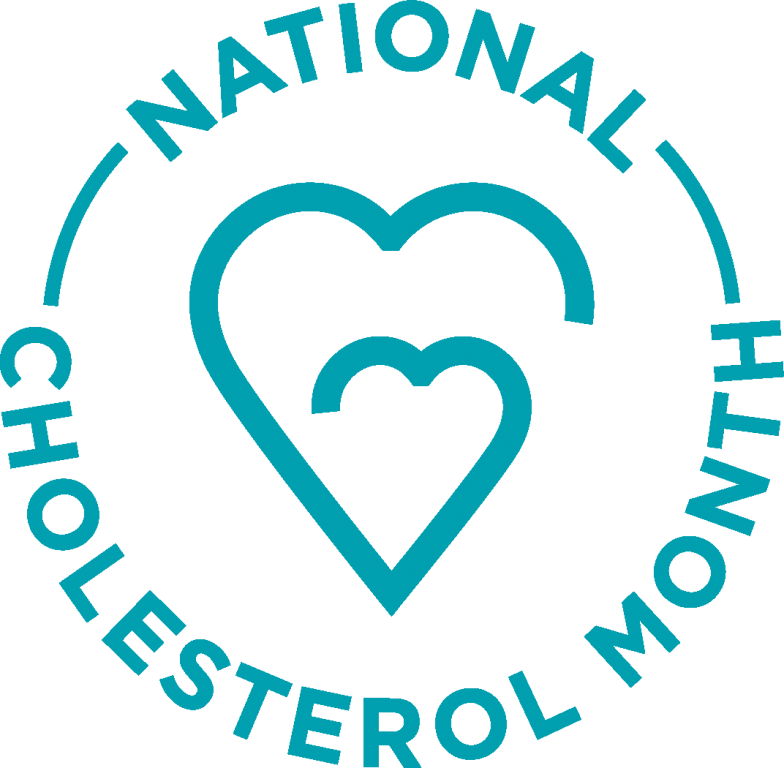October is National Cholesterol Month

Following on from World Heart Day on the 29th September, October is National Cholesterol Month, a campaign by HEART UK which aims to raise awareness on the importance of maintaining a healthy cholesterol level.
High cholesterol is a risk factor for coronary heart disease. Yet despite around half of UK adults having raised cholesterol, many do not realise they have it. In fact, recent research showed that almost a third of the UK population have never had their cholesterol levels checked, leaving a large number of potential diagnoses undetected. This means it’s especially important to build understanding and knowledge on the risks of high cholesterol.
Increased risk of cardiovascular disease (CVD) increases with age, however, the escalation of that risk may happen earlier than previously thought.1 In fact, the current 10 year CVD risk scores may insufficiently detect long term CVD risk in younger individauls.2
Lowering LDL cholesterol earlier in life, and maintaining optimal levels throughout adulthood, could help to prevent coronary heart disease events and lower long term risk of cardiovascular disease.3 Even small reductions in cholesterol early in life have the potential to make a significant impact.4
In addition to younger adults, awareness may also need to be raised for other at risk groups including those with a family history of premature heart disease, post-menopausal women, individuals with Type 2 diabetes and overweight/obese individuals.
Healthcare professionals can help to identify those at risk and suggest dietary and lifestyle modifications to help lower cholesterol such as5,6:
- Reducing weight if obese/overweight
- Reducing alcohol intake (sticking to under 14 units/week)
- Smoking cessation
- Physical activity (minimum 150 minutes activity/week)
- Reducing sedentary time
- Swapping saturated fats for unsaturated fats
- Eating sufficient fibre (30g/day) include sources of soluble fibre e.g. oats, fruit
Including a daily intake of 1.5-2.4g plant stanols/sterols with meals, has also been proven to lower cholesterol by 7-10% in 2-3 weeks.*
Please click here to access and download free healthcare professional resources to help you support your patients with high cholesterol.
You can also direct your patients to the www.Benecol.co.uk website for further information on high cholesterol. Your patients can also access the Benecol Patient Information Booklet online via the following link: https://benecol.co.uk/patient-information-booklet/ Feel free to send the link directly to your patients with high cholesterol!
Got a minute?
HEART UK is encouraging everyone this October to Clue-up for Cholesterol! So test your knowledge for a free download of our Easy Mini-Guide to kick-start heart-health awareness for all.
#NCMHeartUK @heartukcharity
Let’s go!
www.heartuk.org.uk/ncm2021
*Plant stanol ester has been shown to lower cholesterol. High cholesterol is a risk factor in the development of coronary heart disease. A daily intake of 1.5-2.4g of plant stanols has been shown to lower cholesterol by 7-10% in 2-3 weeks.
References:
1. Zhang P et al. Trends in LDL-C and Non-HDL-C Levels with Age. Aging Dis. 2020 Oct 1;11(5):1046-1057.
2.Penson PE et al.. LDL-C: lower is better for longer-even at low risk. BMC Med. 2020 Oct 8;18(1):320.
3.Zhang Y et al. Association Between Cumulative Low-Density Lipoprotein Cholesterol Exposure During Young Adulthood and Middle Age and Risk of Cardiovacular Events. JAMA Cardiology. 2021 Sep. doi:10.1001/jamacardio.2021.3508.
4.Brunner FJ et al; Multinational Cardiovascular Risk Consortium. Application of non-HDL cholesterol for population-based cardiovascular risk stratification: results from the Multinational Cardiovascular Risk Consortium. Lancet. 2019 Dec 14;394(10215):2173-2183.
5.Mach F et al. 2019 ESC/EAS Guidelines for the management of dyslipidaemias: lipid modification to reduce cardiovascular risk: The Task Force for the management of dyslipidaemias of the European Society of Cardiology (ESC) and European Atherosclerosis Society (EAS), European Heart Journal. 2020 Jan. 41(1):111–188.
6.HEART UK. Available online: https://www.heartuk.org.uk/cholesterol/what-is-high-cholesterol. Accessed Sep 2021.
